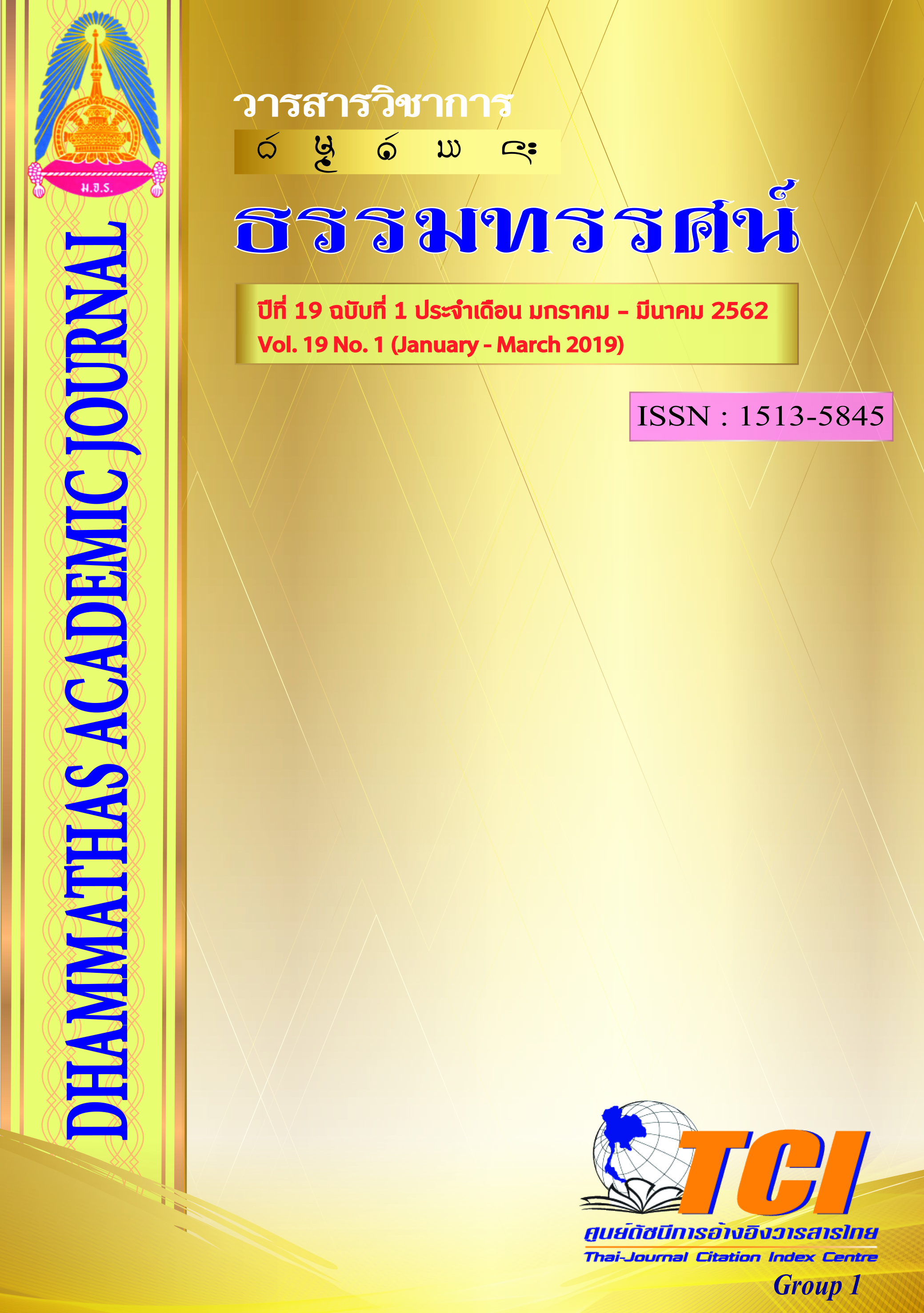The Concept and Practical Study of Buddhist Monks Volunteer in Northern Thailand
Main Article Content
Abstract
This research aims to study; 1) the concepts and operations of the network volunteer graduated monks in the northern region, 2) the Buddhist principles of the network volunteer graduated monks in the northern region, 3) the integration of Buddhist principles and applying to the network volunteer graduated monks in the northern region. The methodology research is documentary and qualitative research which collected data from the field by using the questionnaires and deep interviews from 14 network volunteer graduated monks’ hermitages in the northern region by 7 hermitages from Chiang Mai, and 7 in the Chiang Rai province.
The research found that: the concepts and operations of the network volunteer graduated monks in the northern region, are committed to community development by focusing students and people as the center, as well as engaging people in community and other organizations being a unity and cultivate more faith to people in the community, such as leadership, consistency, uniformity, sincerity to the villagers, good relationships, honesty. However, it is noted that the network volunteer graduated monks still lacked of the evaluation of activities that need to be improve their performance in the following year.
The integration of Buddhist’s principles into the work of the volunteer monks in the northern region has been integrated by the Buddhist’s principles into the user in three areas of operation: Firstly, Self-management was applied by the principle of Iddhipàda4, Brahmavihàra 4, honesty, perseverance and patience, which brought kindness and faith from others to volunteer graduated monks. Secondly; Human Management was applied by the principles of Saïgahavatthu 4, Ràjadhamma 10 and harmony to integrate human management in order to cultivate the harmony of the people and move forward to the communities’ harmony. This operation caused to accomplish with the goal. Lastly; the job management was applied by the 4 Noble Truth, the Sappurisa-dhamma 7 and the parihàniyadhamma 7 (conditions of welfare) by integrating in the job management to solve the problems of works and the principle management of works that causes progress in works.

